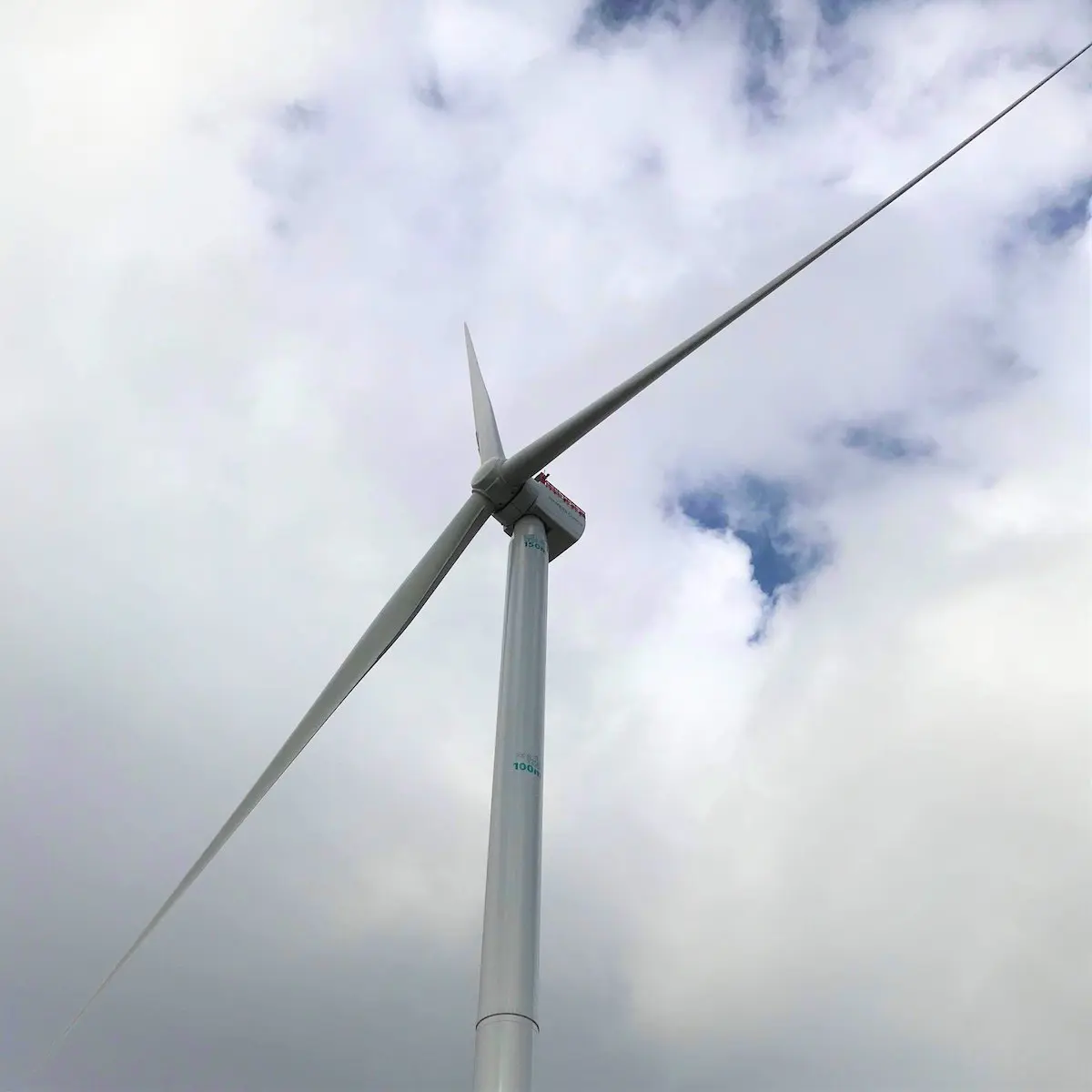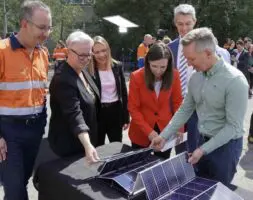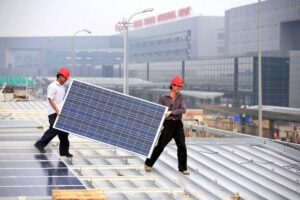The German government has agreed to backstop energy giant Siemens Energy to the tune of €7.5 billion as part of a larger €15 billion package designed to help the company overcome ongoing turmoil in its wind turbine unit Siemens Gamesa.
Germany’s economic ministry announced on Tuesday that it would provide a guarantee of €7.5 billion as part of a larger package of guarantee lines totalling €15 billion with private banks and other stakeholders.
The move comes after weeks of “intensive contact” between Siemens Energy, Siemens AG, private banks, and the federal government, as S&P cut the group’s long-term credit rating, making banks more reluctant to provide their own guarantees.
With an order book reportedly worth €110 billion, Siemens Energy is a key player in the global transition to clean energy, but without banking guarantees was struggling to deliver on its obligations.
Prime amongst the difficulties suffered by the company are a number of faulty wind turbines.
“The group has a problem as a result of the takeover of the Spanish company Gamesa, faulty wind turbines, which in turn has put the company, which is otherwise in good health and has full order books, in a precarious situation,” said German Economy Minister Robert Habeck.
Siemens Gamesa was integrated into Siemens Energy in the middle of the year, bringing with it a number of onshore wind turbine quality issues and challenges in its offshore ramp-up. These issues forced Siemens Energy to revise down its full-year guidance and take on a massive net loss of around €4.5 billion.
But the German government has recognised the importance of Siemens Energy, not only to Germany – with around 26,000 employees in Germany – but also to the larger clean energy transition.
As a manufacturer of not only wind turbines but also hydrogen electrolysers, the German economic ministry described Siemens Energy as “an important employer in future-proof industries.”
But with global financial challenges and industry specific issues, renewable energy companies like Siemens Energy are currently having trouble obtaining the full guarantees they need to continue development and production.
In an effort to address these issues, the German federal government and a handful of private banks have combined to provide guarantees of €15 billion – €7.5 billion from the federal government, and €4.5 billion from the banks.
In turn, Siemens Energy will face a ban on dividends and bonuses, while also seeking to negotiate the sale of shares in an unnamed joint venture, which is expected to result in a cash inflow of around €2 billion.
While Siemens Energy has not made any public announcements on its website at the time of writing – with its fourth-quarter financial earnings press conference due to begin later this evening – the company did acknowledge media reports of talks with the German government in late October.
According to the statement, “Siemens Energy financial results for fiscal year 2023 are expected to be fully in line with guidance,” and that “Siemens Gamesa is working through the quality issues and is addressing the offshore ramp up challenges as announced in the third quarter communication for fiscal year 2023.”
In a statement Tuesday to journalists, a company spokesperson added that “We are pleased with the German government’s clear support for Siemens Energy and the commitment to the rapid implementation of projects to make the energy transition a success,” adding that they would provide further details in its annual press conference later today.
The announcement comes as the Spanish government said on Tuesday that it is working with banks to provide financial support to Siemens Gamesa.
“The future of Siemens Gamesa in Spain is a priority for the government,” the Industry Ministry said in a statement.
“Therefore, it is working on a possible line of bank guarantees for new Siemens Gamesa contracts abroad … and is in talks with both the company and potentially interested banks.”










